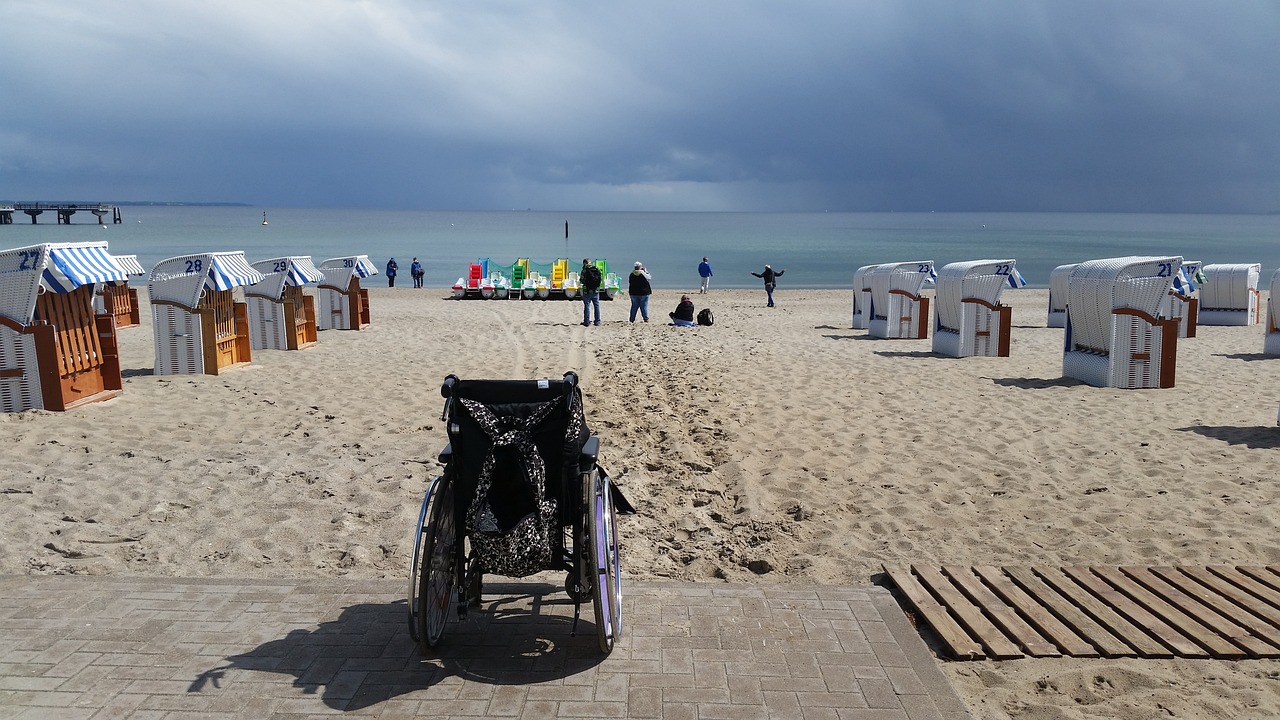Memorial Day, the unofficial start of summer vacation in the U.S., is fast approaching. It’s almost time for some summer beach fun — if we can get there.
Beaches can be difficult, if not impossible, to access for many people with multiple sclerosis. But times seem to be slowly changing.
A disability-friendly beach house
Last summer, my friend Sara Loud, the CEO of the nonprofit Accelerated Cure Project for MS (ACP), was visiting a friend with MS who was vacationing on Cape Cod, Massachusetts. She was delighted to find out how accessible his rented beach house was and reported about it in ACP’s newsletter.
I contacted the renter, Kemp Jaycox, for more details, and he told me it’s a two-story town house with a ramp to the front door and another ramp leading to platforms in the back with “an amazing view of the beach and Cape Cod Bay.” There’s a bedroom on the first floor with an adjustable bed. The bathroom is open and has a roll-in shower with a bench.
Outside is a fabric mat that Jaycox can use to roll his wheelchair to the beach. Once there, a floating beach wheelchair — one of those things with big, rubber wheels — can take him farther. He said it allowed him to put his feet in the sand for the first time in eight years. The whole thing, he told me, “is a true gem and blessing for families like mine!”
SMILE put that smile on his face
All of this was due to the efforts of SMILE Mass (Small Miracles in Life Exist), a nonprofit group featured in the newsletter. It’s dedicated to helping people with disabilities and their families enjoy vacation and recreation experiences.
In addition to the town house, over the past 13 years, SMILE Mass has donated 180 of those floating wheelchairs to public beaches all over New England. Amazingly to me, the organization will even ship those beach wheelchairs to borrowers outside of New England for only the cost of the two-way shipping.
The group offers other recreational items and programs as well. And of course, there’s the Cape Cod town house that’s available to rent, with financial assistance available for people who qualify.
Some cities and towns are helping
Over the past several years, some local governments have made their beaches more accessible. In Ocean City, Maryland, where I used to live, the town makes beach wheelchairs available in the summer. But it’s mostly first come, first served, there are only a handful of chairs to serve the thousands of people who vacation there and you’ll need someone to push you.
In Seaside Park, New Jersey, they started putting down temporary, hard plastic mats to create a path across the sand that a wheelchair can travel. I’ve seen this type of mat in New York City and on a number of other beaches. Here in Florida, there are many accessible beaches, and a Google search will turn up more elsewhere in the U.S.
More beaches need to join in
There seem to be more accessible beaches than there were 10 years ago, but there are still many places where someone with a wheelchair can’t get onto the sand. If your beach is one of them, I encourage you to speak to your local government officials about it. Seaside Park only got its plastic mats because a pair of women started a campaign for them. SMILE Mass was started by two women who are mothers of special needs children and wanted a place for them to play.
You could be the person who helps someone with MS feel the sand on their feet.
(A version of this post first appeared as my column on the MS News Today website.)



